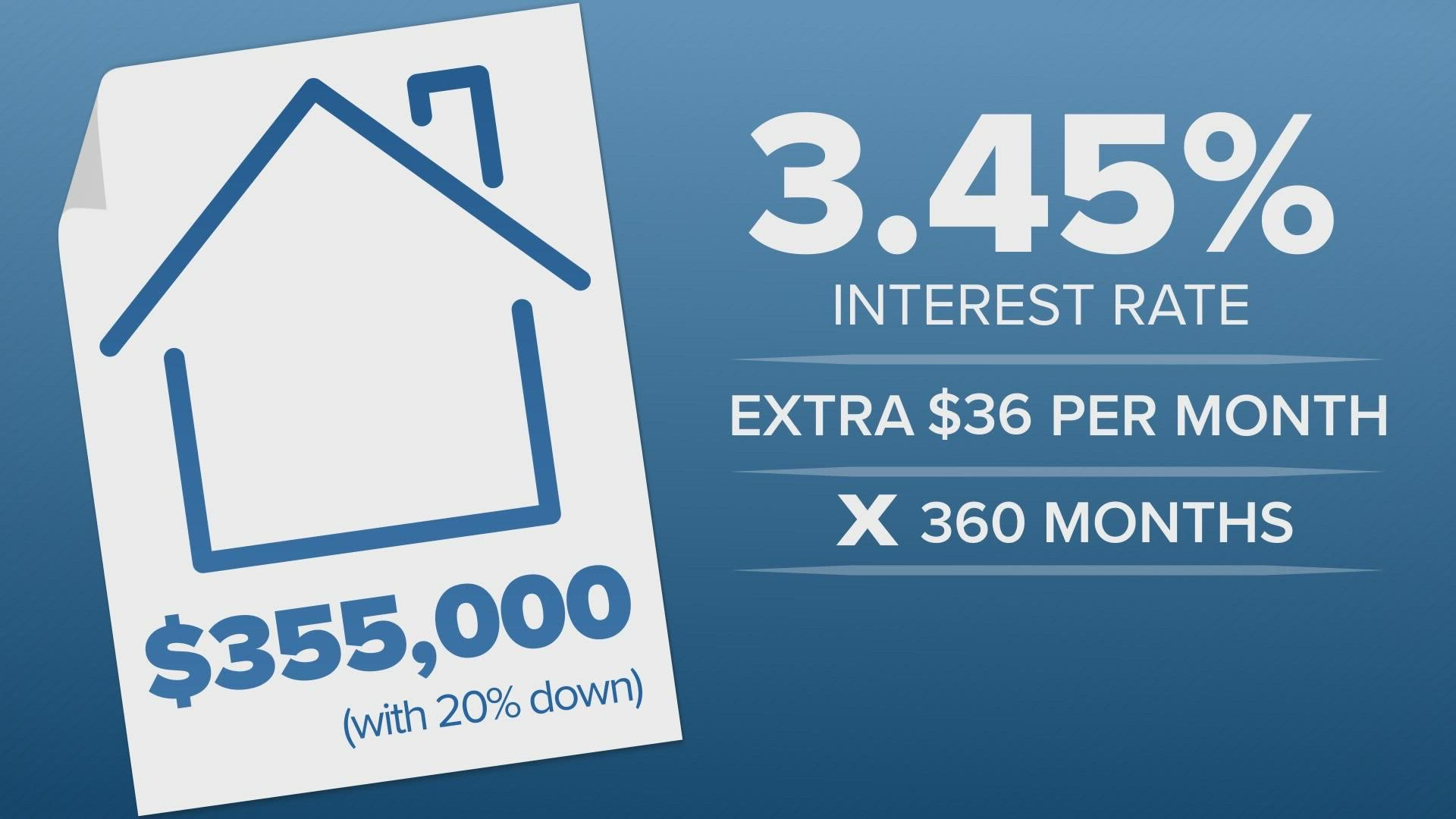TEXAS, USA — In a recent Right on the Money report, WFAA's Jason Wheeler talked about rising mortgage interest rates and how some experts expect them to go up by almost a full percentage point this year. That would be a significant increase.
Right after that report, in a matter of just one week, rates jumped about one-quarter of the way to making that prediction come true. The average 30-year fixed rate climbed from 3.22% to 3.45%.
Small increases in interest rate produce larger increases in interest paid
That new mortgage rate is at its highest since March 2020, right after the pandemic hit.
Here's the numbers on this one-week mortgage rate rise: If you financed a median priced Dallas-Fort Worth home costing $355,000 (with 20% down and a 3.45% rate instead of a 3.22% rate), that extra fraction of interest would translate into an extra $36 per month, because your principal and interest payment would go from $1,231 per month to $1,267 per month.
Multiply that out over the life of a 30-year loan — and you are paying an additional $12,960 in interest.
And it all got tacked on in one week.
So, as Wheeler said before, keep a close eye on interest rates if you are planning to buy a home this year.
A possible way to pay off your mortgage earlier, for less
Even with interest rates going up though, you have the power to possibly increase a different kind of rate and save yourself a lot of money -- which is the rate at which you pay your mortgage.
Usually, it's in terms of a monthly payment: 12 of them each year.
Hypothetically, let’s say you have a mortgage payment of $2,000 per month. You would pay $24,000 per year.
Now, let’s re-think mortgage as something you pay bi-weekly. There are 26 of those time periods in a year. If we cut your hypothetical mortgage in half, and you pay $1,000 every two weeks, in most months you would still pay $2,000. But every several months you would have that extra bi-weekly period where you would make another of your $1,000 payments.
So, over the year, you would pay $26,000.
Plugging in the numbers for our median D-FW home of $355,000 (with 20% down and an interest rate of 3,45%), we see a big difference. By paying bi-weekly instead of monthly, you would pay off your 30-year mortgage 43 months sooner, and you’d pay $23,237 less in interest.
But you want to check with your lender to make sure that they don’t charge extra fees for a bi-weekly payment plan that could greatly reduce how much you might save by switching to that kind of arrangement.
Chase has a good calculator to help you plug in numbers for a purchase or refinance. It allows you to toggle between payoff in months and interest paid to see exactly how much you might save by paying your mortgage bi-weekly instead of monthly.
Again, check with your lender first.

